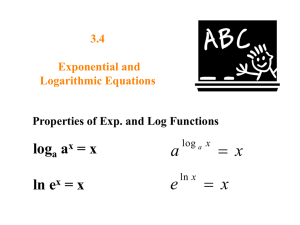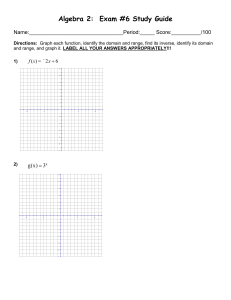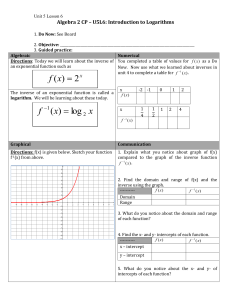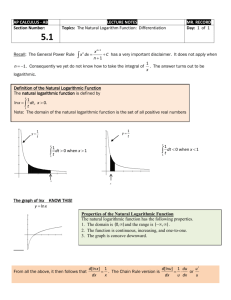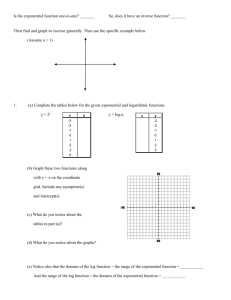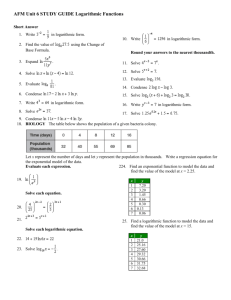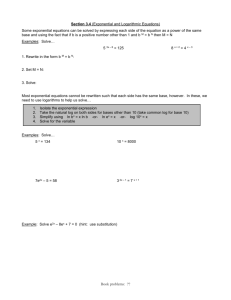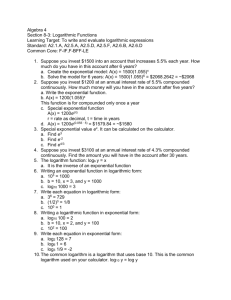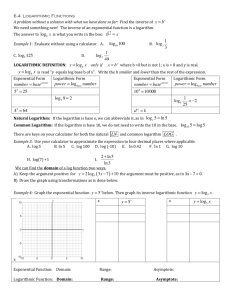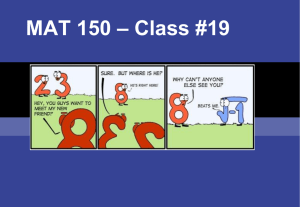6.5 Applications of Common Logarithms
advertisement
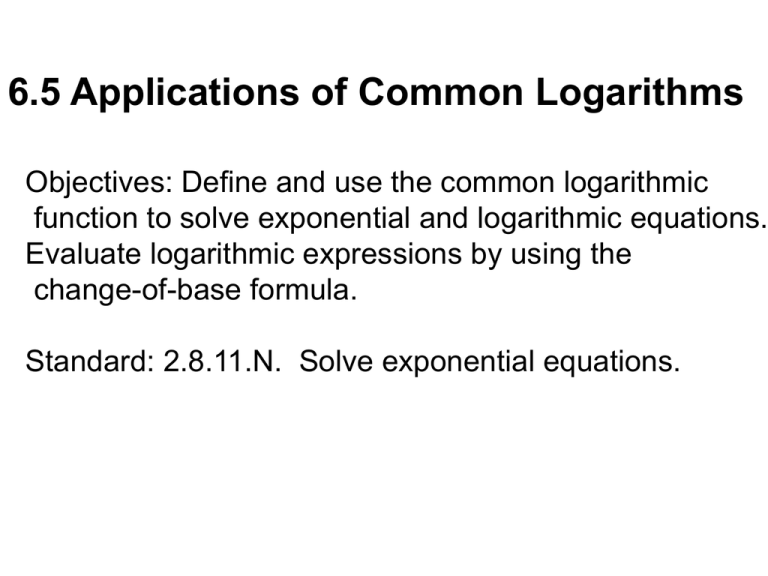
6.5 Applications of Common Logarithms Objectives: Define and use the common logarithmic function to solve exponential and logarithmic equations. Evaluate logarithmic expressions by using the change-of-base formula. Standard: 2.8.11.N. Solve exponential equations. Warm Up: 1.51 103 v v .001 0.25 -2.30 v 49 16v 4 v 7 (42 )v 4 2 2 v7 2 42 v 41 2v 1 1 v 2 The base 10 logarithm is called the common logarithm. In general, logarithmic functions are used to assign large values in the domain to small values in the range. x 10 100 y = log x 1 2 1000 3 10,000 100,000 4 5 … … Recall from lesson 2.7 that the graph of y = a*f(x) is the graph of y = f(x) stretched by a factor of a. Therefore the graph of y = 10 log x is the graph of y = log x stretched by a factor of 10. R 10log 300 I 0 I0 R 10log 300 R 25 decibels R 10log I I0 107 70 10 log I I0 10 log I I0 70 10 10 7 log I I0 I I0 107 I0 I The running vacuum cleaner is about 107 , or 10,000,000 times as loud as the threshold of hearing. log8 log 792 x x log8 log 792 log 792 x= log 8 x 3.21 You can use the change-of-base formula to change a logarithmic expression of any base to base 10 so that you can use the LOG key on your calculator. log 36 log8 36 log 8 p. 389 #10-16 even p. 390: #28-34 Even Homework: Practice 6.5 Chapter 6 Test FRIDAY!
